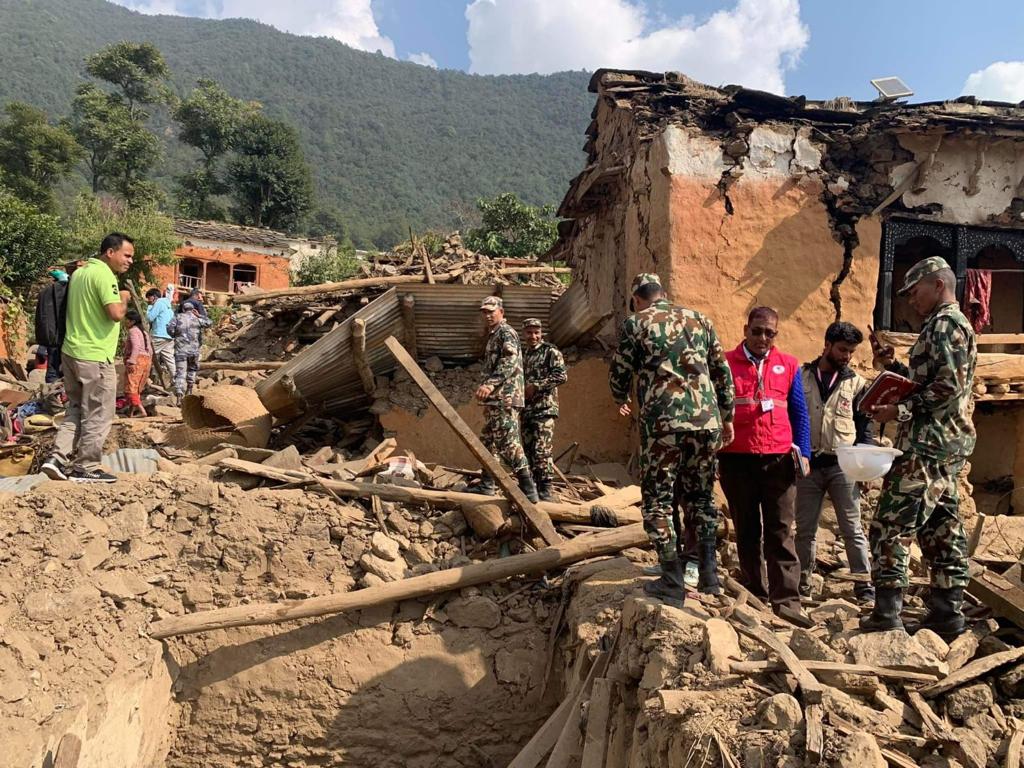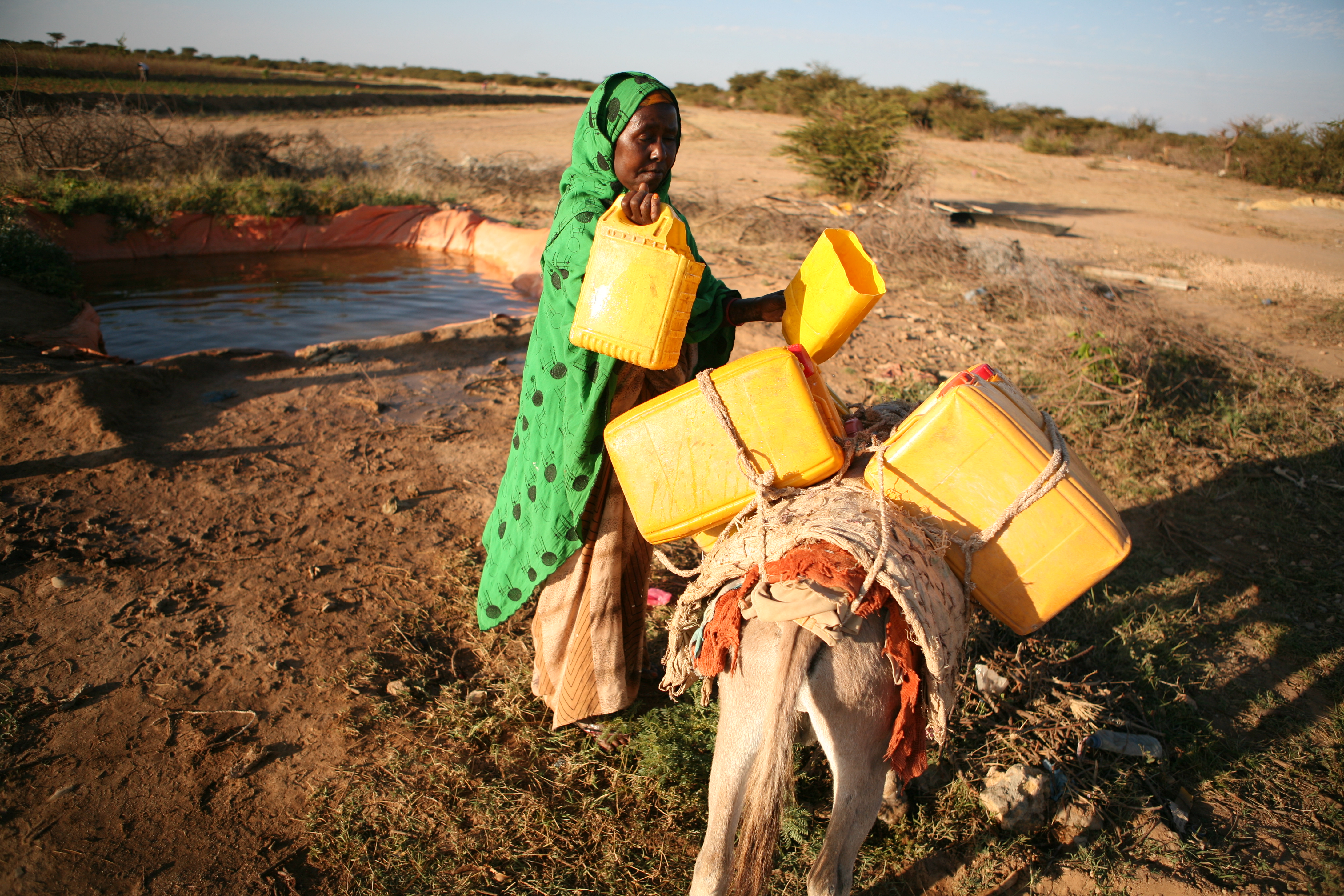Istanbul International Centre for Private Sector in Development
Resilience and Crisis Response
As of 2022, two billion people, or a quarter of humanity, live in conflict-affected areas due to a record number of 57 state-based conflicts. As a result, UNHCR estimates that 103 million people have been forcibly displaced from their homes due to persecution, conflict, violence, and similar events.
At the same time, over the past two decades there have been between 350 and 500 medium- to large-scale disasters each year and the number of disaster events is projected to reach 560 a year – or an average of 1.5 disasters a day – by 2030. These affect an average of 218 million people annually, with low- and lower-middle-income countries disproportionately affected. By 2030 up to 325 million extremely poor people are expected to live in the 49 most hazard-prone countries.
While governments maintain the overall responsibility on disaster risk management, local communities and the private sector also play crucial roles in risk assessment, disaster risk reduction, emergency preparedness, response and recovery for all hazards and shocks. Private sector plays an essential role in building the resilience of their assets and their employees, helping build the resilience in communities where they operate, and when needed, play a role in crises response. To increase private sector resilience and build their capacity for crisis response, in 2022, IICPSD designed and developed the new initiatives under the Resilience and Crisis Response thematic area.

Aftermath of an earthquake in Nepal

Drought in Somalia
House Repairs in Haiti
Our Work
With the goal of leaving no one behind and building the resilience of a wider category of businesses in disaster-prone, climate vulnerable, conflict-affected, economic crisis-stricken and fragile countries, states, cities and communities, IICPSD complements the work of the UNDP-OCHA Connecting Business Initiative on private sector networks through service offers aimed at engaging, supporting and capacitating various other types of private sector actors (e.g, MSMEs) at multiple levels of engagement and building the resilience of their strategic areas of concentration.
To increase private sector resilience and build their capacity for crisis response, IICPSD aims to:
- Build the resilience and harness the capacities of private sector entities including multinational corporations, national corporations, formal micro, small and medium enterprises (MSMEs), state-owned enterprises, intermediary entities especially in conflict and fragile settings, and other relevant entities.
- Build the resilience of areas where private sector actors are concentrated such as at-risk and crisis-affected cities and communities as well as central business districts, special/ organized economic zones and other areas of businesses concentration.
- Strengthen the resilience of value chains, supply chains and strategic industries of the economy
IICPSD conducts studies, develops technical support, and harnesses multi-stakeholder partnerships for private sector, UNDP, and UNDP Country Offices, assisting them in risk assessment, disaster risk reduction, crisis preparedness, response, and recovery efforts, as well as supporting UNDP Country Office engagement with the private sector in different crisis situations.
We offer Business Impact Assessments (BIAs) that provide critical strategic guidance for crisis management and business recovery, are based on the needs and priorities expressed by the Government for engaging the private sector in the aftermath of disasters, and support the affected communities in resource mobilization and regaining of their autonomy. IICPSD also offers to build and implement Business Coaching programs for private sector actors, affected by crisis, that includes business auditing, prototype modelling and group coaching to avoid common mistakes in resource allocation, brings business owners together, and ensures workers have the right work mindset.
We help build Community and MSME Resilience, as well as resilient agricultural sectors in at risk, fragile and conflict affected areas. We provide technical assistance for enabling access to energy for industrial parks which further improves the conditions for scaling up private sector investment in the energy production. We aim to raise awareness and train private sector actors in areas like disaster risk financing and insurance that helps protect them from financial losses following unforeseen events. We provide Post-Crisis and Disaster Recovery Support that includes technical assistance on sanctions compliance and banking and financial systems, and a Business Response and Recovery Tool for UNDP to make critical decisions following crisis settings. Finally, we develop tools and training programs and provide planning and advisory support to help build private sector resilience in various operational settings.
Examples of our work
Since May 2022, the IICPSD Resilience Team has developed several pilot outputs including two reports on Afghanistan: “Women-owned Entrepreneurship in Afghanistan: Focus on Access to Finance” and “Businesses and Financial Conditions: Impact of Financial Crisis on Private Sector in Afghanistan”. We also provided an operational framework strategy for creating an Afghanistan Private Sector-led Economic Growth Strategy, which identified technical barriers to trade, market attractiveness, import requirements, market quality requirements, competition trends and logistics.
Contact Us
For inquiries, you can get in touch with Irwin Lopez at irwin.lopez@undp.org.

 Locations
Locations